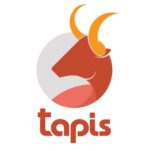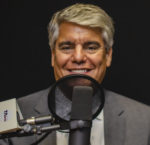Scientists looking to reduce their complexity to research and add a new computational tool to their tool belt can explore the Tapis Project. Newly funded with a $2.9 million grant from NSF, the Tapis software platform aims to help researchers more easily leverage powerful supercomputers and integrate and manage data from different and distant sources. “The easiest way to describe Tapis is that it’s a web-based application that provides all the tools a modern scientist needs to do data-intensive, computationally-intensive research.”
Podcast: How the Frontera Supercomputer will power research at UT Austin
In this podcast, Dr. Greg Fenves, President, the University of Texas at Austin describes how the new Frontera supercomputer at TACC will drive academic research. “The University of Texas at Austin has claimed a leadership role in supercomputing with the top academic system in the world, Frontera, located at the Texas Advanced Computing Center (TACC). The National Science Foundation awarded TACC $60 million for building and operating Frontera, the #5 fastest computer in the world according to the June 2019 Top500 rankings.”
TACC Powers Climate Studies with GRACE Project
Researchers are using powerful supercomputers at TACC to process data from Gravity Recovery and Climate Experiment (GRACE). “Intended to last just five years in orbit for a limited, experimental mission to measure small changes in the Earth’s gravitational fields, GRACE operated for more than 15 years and provided unprecedented insight into our global water resources, from more accurate measurements of polar ice loss to a better view of the ocean currents, and the rise in global sea levels.”
Podcast: UT Chancellor William McCraven on What Makes TACC Successful
“It’s great to have these incredible servers and incredible processors, but if you don’t have the people to run them – if you don’t have the people that are passionate about supercomputing, we would never get there from here.”Behind all of this magnificent technology are the fantastic faculty, researchers, interns, our corporate partners that are part of this, the National Science Foundation, there are people behind all of the success of the TACC. I think that’s the point we can never forget.”







